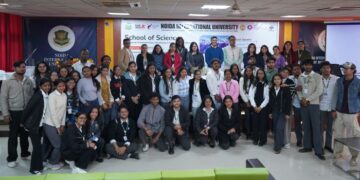Adding to the growing list of prominent Indian universities severing ties with Turkish institutions, the Indian Institute of Management Kozhikode (IIMK) on May 20 officially announced the immediate termination of its Memorandum of Understanding (MoU) with Sabancı University, Turkey. This move follows Turkey’s alleged provision of drones and military personnel to Pakistan during the recent armed conflict (May 7–10), which erupted after India launched ‘Operation Sindoor’—a retaliatory strike against terrorist infrastructure in Pakistan in response to the Pahalgam terror attack. Turkey’s military support to Pakistan has been widely perceived as a direct affront to India’s sovereignty.
In a statement on the decision, Prof. Debashis Chatterjee, Director of IIM Kozhikode, said: “At IIM Kozhikode, we place utmost importance on aligning our global engagements with the national interest. The decision to annul the MoU with Sabancı University has been taken after careful consideration and is in keeping with our institutional responsibility to uphold the values and priorities of our nation. We remain committed to fostering international collaborations that reflect mutual respect, strategic alignment, and shared national values.”
This decision is part of a broader trend, with institutions such as Jawaharlal Nehru University (JNU), Jamia Millia Islamia, Lovely Professional University (LPU), Maulana Azad National Urdu University (MANUU), and Chhatrapati Shahu Ji Maharaj University (CSJMU) in Kanpur also ending their academic collaborations with Turkish universities.
Earlier this month, the Association of Indian Universities (AIU) had issued an advisory urging all Indian HEIs to reassess their partnerships with universities in Turkey, Pakistan, and Bangladesh, citing national security concerns. The directive has prompted institutions across India to critically evaluate the implications of international academic collaboration in the current geopolitical climate.
As the situation continues to unfold, the long-term ramifications for cross-border academic cooperation remain unclear. Universities are now faced with the challenge of balancing educational goals with considerations of national interest and diplomatic alignment.
So far, there has been no official response from the Turkish government or its academic institutions regarding the termination of these collaborative agreements. However, Turkish Ambassador to India, Fırat Sunel, commented on bilateral ties during an interview on April 30, stating that India and Turkey do not require a “reset” in relations. He emphasized that the two countries can hold differing perspectives on global issues while continuing to regard each other as partners.
Nevertheless, recent developments—including India’s revocation of security clearance for Turkish aviation firm Çelebi and the postponement of the credentials ceremony for the new Turkish envoy—indicate a cooling of diplomatic ties. These actions, alongside the academic disengagements, reflect a broader deterioration in India-Turkey relations.
As academic institutions navigate this increasingly complex landscape, the future of educational diplomacy between the two nations remains uncertain.













